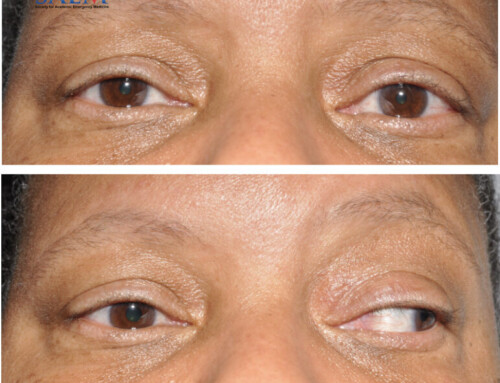
A 26-year-old male with no significant past medical history presented to the ED after slipping on wet pavement and hitting his head on the ground three hours prior. He endorsed a constant, achy 7/10 headache accompanied by nausea and photophobia. He denied vomiting, dizziness, diplopia, loss of consciousness, or seizures. Nothing made it better or worse.
Vitals: BP 101/63; HR 76; RR 14; T 36.7°C
General: Alert and oriented, no acute distress
HEENT: Normocephalic, atraumatic, tenderness elicited over right occipital bone, PERRLA, + photophobia
Neurologic: WNL with no focal motor or sensory deficits appreciated other than photophobia; deep tendon reflexes 2+ throughout, steady gate
Non-contributory
This patient has a classic presentation of Mega Cisterna Magna (MCM). MCM is a rare cystic posterior fossa malformation characterized by a 10 mm or larger cisterna magna on midsagittal planes, absent hydrocephalus, and an intact cerebellar vermis. Most cases of MCM are found during prenatal ultrasonography. Adults with isolated MCM are typically asymptomatic and found incidentally on radiographic imaging. No follow-up or treatment is needed.
More than 90% of patients with isolated MCM (such as our patient) have a favorable prognosis and normal development. However, there are multiple conditions that have been found to be associated with MCM. Developmental or cognitive delay occurs in about 8% of patients with MCM, and patients with MCM scored slightly lower than controls when comparing memory, executive functioning, and language fluency. MCM is also associated with other central nervous system (CNS) anomalies; the most common being ventriculomegaly, cerebellar hypoplasia, and arachnoid cysts. Renal defects, such as a horseshoe kidney, are the most common extra-CNS anomalies.
Take-Home Points
- Mega Cisterna Magna is a cystic posterior fossa malformation typically found on perinatal ultrasonography or incidentally on cranial imaging in asymptomatic patients. MCM is a benign condition with no need to follow up or initiate treatment.
- Mega Cisterna Magna is associated with developmental and cognitive delay, inferior memory, executive functioning, and verbal fluency, renal defects, and other CNS anomalies.
Copyright
Images and cases from the Society of Academic Emergency Medicine (SAEM) Clinical Images Exhibit at the 2023 SAEM Annual Meeting | Copyrighted by SAEM 2023 – all rights reserved. View other cases from this Clinical Image Series on ALiEM.

Sarah Gross
University of South Alabama College of Medicine

Latest posts by Sarah Gross (see all)
- SAEM Clinical Images Series: Intracranial Abnormality - October 27, 2023

Michael Sternberg, MD
Department of Emergency Medicine
University of South Alabama

Latest posts by Michael Sternberg, MD (see all)
- SAEM Clinical Images Series: Enigmatic Traumatic Hip Pain - December 22, 2023
- SAEM Clinical Images Series: Intracranial Abnormality - October 27, 2023
- SAEM Clinical Images Series: A Case of Painful Skin Lesions - October 20, 2023





